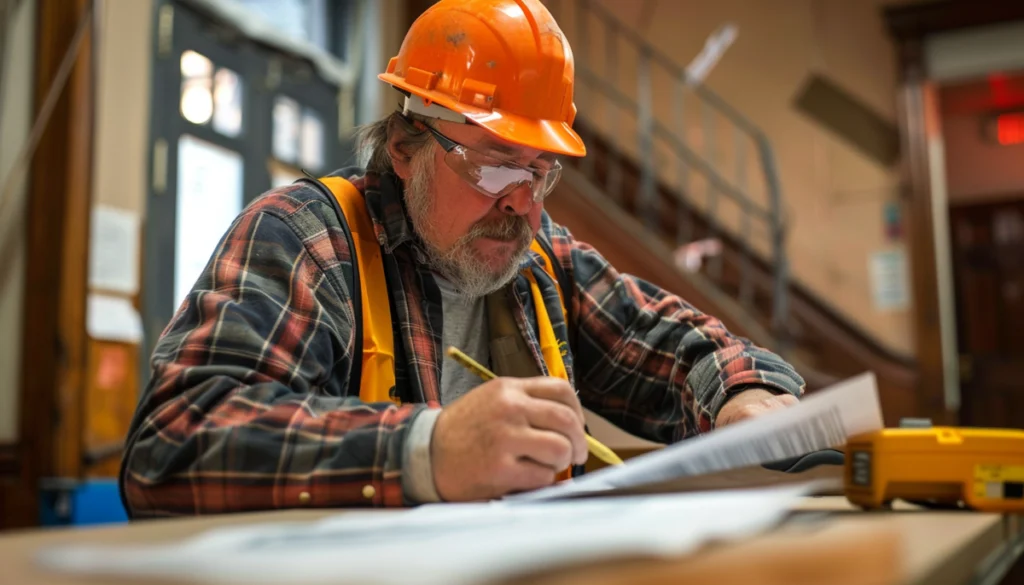Blog
Do You Need a Permit for HVAC Replacements in Colorado?

Replacing an HVAC system is a significant project for any homeowner, especially in Colorado, where temperature extremes can be challenging. Understanding the permit requirements for these kinds of replacements is crucial. HVAC systems involve complex components that can pose safety risks if improperly installed.
By obtaining the appropriate permits, you can ensure your system is installed safely and legally, avoid potential fines, and comply with local regulations. As one of Colorado’s top HVAC contractor companies, we have plenty of experience with HVAC replacement permits and requirements. This guide will help Colorado homeowners navigate the permit process efficiently, emphasizing the importance of professional involvement and adherence to local codes.
The Short Answer: Are Permits Required for Colorado HVAC Replacements?
Yes, in Colorado, a permit is generally required for HVAC replacement. This ensures safety compliance with building codes and protects homeowners from fines and legal issues.
Why Permits Are Necessary
HVAC systems involve electricity, gas, and refrigerants, which can be hazardous if improperly handled. Permits ensure that installations are performed by trained professionals who adhere to safety standards, significantly reducing the risk of accidents such as electrical fires or gas leaks.
Legally, permits are mandated by local building codes and regulations. These codes vary by municipality in Colorado but universally require permits for significant HVAC work. Failure to obtain the necessary permits can lead to substantial fines and legal repercussions, including project halts and increased costs due to non-compliance.
Many homeowner insurance policies require proof of permit compliance for HVAC replacements. Without this proof, you risk voiding your insurance coverage in case of damage or accidents related to the new system.
Overview of Permit Requirements in Colorado
In Colorado, permit requirements for HVAC replacements are governed by local regulations, which can vary significantly between municipalities. Generally, a permit is required for any substantial HVAC work, including replacing major components such as compressors, ductwork, forced air systems, and evaporative coolers. Specific requirements can differ from city to city, but the primary goal remains: ensuring safety and compliance with building codes.
In Denver, for instance, a permit is required to install or replace any air conditioning or heating system. This includes various equipment such as gas piping, unit heaters, and through-wall heaters. The process involves submitting detailed plans and specifications, which the local building department reviews to ensure compliance with safety and energy efficiency standards.
Similarly, permits are mandatory for HVAC replacements in Aurora, covering a broad spectrum of equipment and installations. This ensures all work is performed according to local building codes, safeguarding the homeowners and the technicians involved.
While minor installations like window AC units might not require permits, it’s always best to check with the local building department to confirm specific requirements. For larger projects, such as installing a new central air conditioning system or replacing a furnace, obtaining a permit is a legal obligation and a critical step in ensuring the safety and longevity of the installation.
The Permit Application Process
Each municipality may have specific requirements, so it’s crucial to understand the exact guidelines that apply to your location. This can typically be done by visiting the local building department’s website or contacting them directly.
Once you understand the local requirements, gather the necessary documentation. This usually includes detailed plans and specifications of the HVAC system to be installed, proof of the contractor’s license, and sometimes a site plan showing the location of the new equipment. Ensuring your contractor is licensed and insured is vital, as unlicensed work can lead to significant legal and financial issues.
Next, submit your application and the required documents to the local building department. Be prepared to pay a fee, which varies depending on the scope of the work and the municipality. The application process may take some time, so it’s important to plan accordingly and factor in potential delays when scheduling your project.
The Role of HVAC Technicians
HVAC technicians play a crucial role in obtaining permits for HVAC replacements. Typically, it is the responsibility of the licensed HVAC technician or contractor to handle the permit application process on behalf of the homeowner. This includes preparing and submitting all necessary documentation to the local building department, coordinating inspections, and ensuring the installation complies with all relevant codes and standards.
Licensed contractors have the knowledge and experience to navigate the complexities of local building codes and permit requirements. They are also obligated to perform work that meets safety and quality standards, reducing the risk of errors and ensuring the longevity and efficiency of the HVAC system.
Common Questions and Misconceptions
Many homeowners have questions and misconceptions about HVAC permits, particularly regarding DIY installations. It’s essential to understand that replacing or installing an HVAC system yourself is generally not advisable. Local municipalities in Colorado, such as Denver and Aurora, do not issue permits to unlicensed individuals. Attempting a DIY installation without proper permits can lead to significant safety risks and legal issues.
Another common misconception is that permits are only required for large projects. In reality, permits are often necessary for various HVAC-related tasks, including replacing furnaces and air conditioning units and installing ductless mini-split systems. While minor tasks like installing a window AC unit may not require a permit, most substantial HVAC work will.
Final Thoughts on Colorado HVAC Permits
Obtaining permits for HVAC replacements in Colorado ensures safety, legal compliance, and peace of mind. Permits protect homeowners from potential hazards, legal issues, and insurance complications. By working with licensed HVAC professionals, you can navigate the permit process efficiently and ensure that all work meets local building codes and standards.
This protects your investment and enhances the long-term performance and safety of the HVAC system. Always consult local authorities and professional technicians to stay informed and compliant with the latest regulations.
